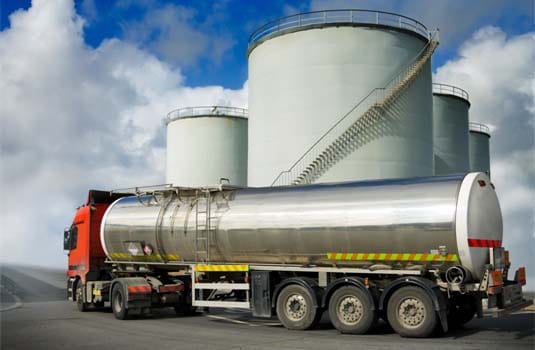Business
Efficient Fuel Delivery Systems: Streamlining Supply for Maximum Convenience

In today’s fast-paced world, convenience plays a crucial role in every aspect of our lives. Whether it’s ordering groceries online or getting a ride with just a few taps on our smartphones, we’ve come to expect efficiency and convenience in all our daily activities. The same holds true for fuel delivery systems, where the demand for streamlined supply has led to the development of efficient solutions that maximize convenience for consumers. In this article, we will explore the importance of efficient fuel delivery systems and how they are revolutionizing the way we access and receive fuel.
The Need for Efficient Fuel Delivery Systems
Traditional fuel delivery methods often involved consumers driving to a gas station, waiting in line, and manually refueling their vehicles. This process could be time-consuming, especially during peak hours, and often resulted in unnecessary fuel consumption due to idling and queuing. Additionally, gas stations could face supply chain disruptions, leading to temporary shortages and inconvenience for customers. These challenges prompted the need for more efficient fuel delivery systems that optimize the supply chain and enhance the overall experience for consumers.
On-Demand Fuel Delivery Services
One of the most significant advancements in fuel delivery systems is the emergence of on-demand fuel delivery services. These services leverage technology and logistics to bring fuel directly to the consumer’s location, eliminating the need for them to visit a gas station. With just a few taps on a mobile app, customers can request fuel delivery to their home, office, or any other designated location.
On-demand fuel delivery services offer several advantages. Firstly, they save customers valuable time and effort by eliminating the need for them to visit a gas station. Instead, fuel is conveniently delivered to them, enabling them to focus on their daily activities without interruptions. Secondly, these services reduce fuel consumption and associated emissions by optimizing delivery routes and minimizing idle time. By streamlining the supply chain, fuel delivery vehicles can operate more efficiently and deliver fuel to multiple customers in a single trip.
Smart Fuel Lockers and Automated Refueling
Another aspect of efficient fuel delivery systems is the implementation of smart fuel lockers and automated refueling technologies. Smart fuel lockers are secure and weather-resistant compartments that store fuel until it is ready for use. These lockers can be installed at various locations, such as parking lots, residential areas, or commercial complexes, allowing customers to access fuel conveniently at any time.
Automated refueling systems take efficiency a step further by enabling vehicles to refuel themselves autonomously. These systems use sensors and communication technologies to detect when a vehicle’s fuel level is low and initiate the refueling process. The vehicle is then directed to a nearby fueling station or smart fuel locker, where it can autonomously align with the fuel pump and refill its tank. Automated refueling not only saves time for vehicle owners but also ensures that vehicles are always fueled and ready for use.
Optimized Supply Chain Management
Efficient fuel delivery systems also rely on optimized supply chain management to ensure a seamless flow of fuel from refineries to end consumers. Advanced analytics and real-time monitoring technologies are utilized to track fuel inventory, consumption patterns, and demand fluctuations. This data-driven approach enables fuel suppliers to anticipate and address supply shortages proactively, reducing the likelihood of fuel unavailability at gas stations.
Furthermore, optimized supply chain management helps in minimizing transportation costs and optimizing delivery routes. By analyzing traffic patterns, demand hotspots, and customer preferences, fuel delivery companies can plan their routes effectively, reducing fuel consumption and maximizing delivery efficiency. This not only benefits the environment but also leads to cost savings that can be passed on to the customers.
Conclusion
Efficient fuel delivery systems are transforming the way we access and receive fuel, providing maximum convenience to consumers while optimizing the supply chain. On-demand fuel delivery services, smart fuel lockers, and automated refueling technologies are revolutionizing the fuel industry by reducing the time and effort required for refueling. Optimized supply chain management ensures a steady and reliable supply of fuel, minimizing shortages and disruptions. As we continue to embrace technological advancements, the future of fuel delivery looks promising, with convenience and efficiency at the forefront.
-

 Business3 weeks ago
Business3 weeks agoPrakash and Kamal Hinduja: Driving Social and Environmental Change
-
Education4 weeks ago
Fred DuVal: University Leadership as a Critical Resource for Climate Change Research and Life-Saving Solutions
-

 Health3 weeks ago
Health3 weeks agoThe Hinduja Brothers Commitment to Global Health: Empowering Communities Across Borders
-

 Cryptocurrency3 weeks ago
Cryptocurrency3 weeks agoDesigned For The Masses: How Akasha (AK1111) Is Unlocking Crypto For The Next Billion Users
-

 Cryptocurrency4 weeks ago
Cryptocurrency4 weeks agoNexaglobal & Future World Token (FWT): Could This Be the Next Big Crypto Investment of 2025?
-

 Sports4 weeks ago
Sports4 weeks agoWomen’s NCAA Tournament 2025 Sweet 16: Full Schedule, Fixtures, Teams, Bracket, and How to Watch March Madness Basketball Match Live
-

 Startup1 week ago
Startup1 week agoCost-Saving Strategies Every Small Business Owner Should Know to Boost Efficiency
-

 Startup3 weeks ago
Startup3 weeks agoMatthew Denegre on the Art of Deal Sourcing: Finding the Right Investment Opportunities













